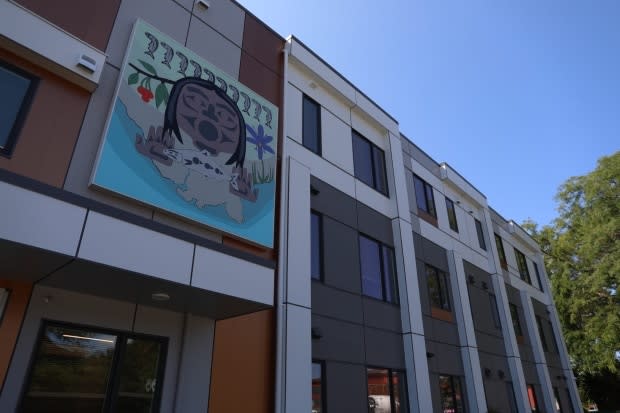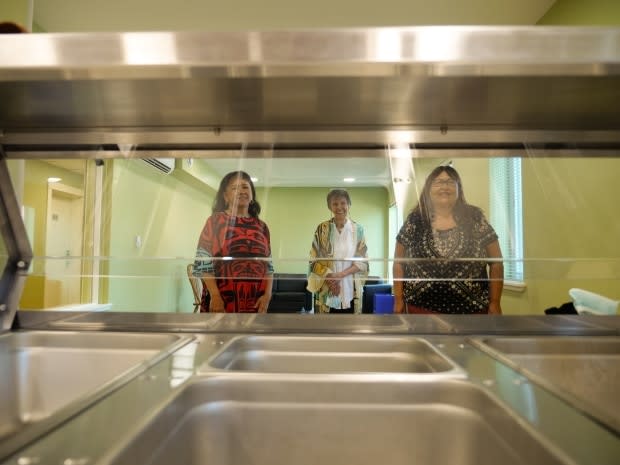New supportive housing aims to help Indigenous women reconnect with their culture
New supportive homes for Indigenous women have been opened in Victoria, where residents will be given the opportunity to reconnect with their culture through traditional food and healing, and assistance from an elder in residence.
The Spaken House — also known as "Flower House" — is a modular two-storey apartment building with 21 self-contained units. Each unit has a private washroom and a mini kitchen, while shared facilities include a commercial kitchen and a dining lounge area.
The housing project is a collaboration between the Aboriginal Coalition to End Homelessness Society (ACEH), B.C. Housing and the Atira Women's Resource Society.
ACEH operates the building and will have round-the-clock staff on site who have been trained by Atira which runs other non-profit housing in B.C.
Fran Hunt-Jinnouchi, executive director of ACEH, said this program is based on what she called the "dual model of housing care."
"On one hand, it's culturally supportive with elders [and] traditional foods, but on the other side, that real missing piece is decolonized harm-reduction practice," she told On The Island guest host David Lennam.

On the first point, the kitchen of Spaken House will provide traditional foods and cooking classes for residents. There's also a therapeutic garden for growing plants and natural medicines.
On the second point, Hunt-Jinnouchi said the housing program is aimed at strengthening the self-identity of Indigenous women, which may have been lost through the foster care system or other kinds of trauma. She said there's a three-bedroom "family townhouse" on site for residents to reunify with their families as part of this healing process.
"It will allow for women that have children and care or live with relatives to be able to spend time with them and rebuild those relationships," Hunt-Jinnouchi said.
Hunt-Jinnouchi said there have been many referrals of women who are living in hotels and temporary homes. She expects most women will move in within the coming two weeks, but doesn't expect all of them will do that at once.
"We'll bring in women on the first floor that require assistance, because they're using a walker or a wheelchair, and so the accessibility challenges [are what] we want to address first," she said.

The B.C. Ministry of Municipal Affairs and Housing doesn't set any timeline for how long a resident can stay in supportive housing, but Hunt-Jinnouchi said ACEH's aim is to set women up so they can move into their own homes.
The B.C. government provided $3.8 million to the project through the Rapid Response to Homelessness program, and will provide annual operating funding of approximately $997,000.

